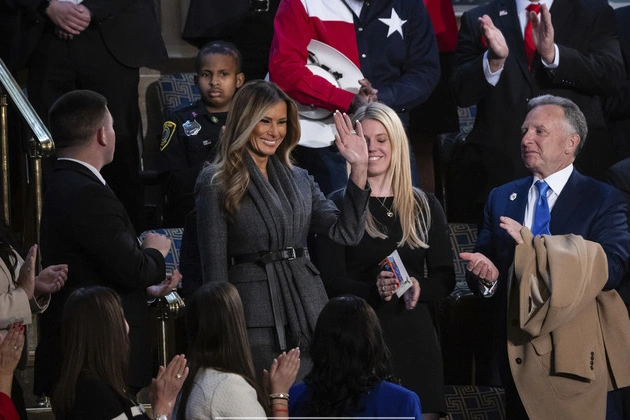
Mayor Karen Bass’s Turbulent Times
LOS ANGELES — Mayor Karen Bass found herself in a whirlwind of negative publicity following the recent devastating fires that engulfed her city. The situation escalated when conflicts arose with the firefighters.
Among the most respected and influential figures in town are the firefighters who bravely battled the unprecedented blazes. Their strong opposition to Bass’s removal of Fire Chief Kristin Crowley adds to the mayor’s challenges as she faces criticism from all sides regarding her handling of the crisis.
Freddy Escobar, the president of the United Firefighters of Los Angeles City, criticized the mayor, accusing her of scapegoating Crowley to divert attention from the city’s failures and the chronic neglect of the fire department.
Firefighters’ Resilient Support
The firefighters’ union is gearing up to support Crowley if she chooses to appeal her dismissal, a tough process requiring a two-thirds vote from the City Council. Regardless of the outcome, it promises more turbulent times for the mayor.
Rebecca Ninburg, a former fire commissioner, highlighted the immense political influence of firefighters, equating their endorsement to being backed by universal symbols of goodwill. She emphasized the firefighters’ heroic status in American society.
Bass’s Bold Stand
Despite acknowledging the challenges of a clash with the firefighters, Bass’s team defended the decision, citing Crowley’s performance during the crisis as the basis for her removal. They portrayed it as a necessary but tough choice for the mayor to address the aftermath of the disaster.
An external advisor to Bass emphasized the conflict between what benefits the city versus political expediency, applauding the mayor’s courage in making a difficult call.
Unfolding Controversies
The chief’s dismissal did not come as a surprise, given her public criticism of the city’s inadequate funding for the department while the fires raged. The escalating tension culminated in a confrontation with Bass, followed by a strained display of unity between the two women.
While firefighters praised Crowley for advocating for essential resources, Bass’s allies viewed her actions as a distraction from the emergency response efforts and unsettling for the residents.
Bass’s dissatisfaction with Crowley grew over time, fueled by the chief’s alleged failure to alert her about the fire risks before the mayor’s trip abroad. The subsequent justifications for Crowley’s termination included deployment decisions during the Palisades Fire and her alleged reluctance to participate in a post-fire report.
Community Backlash and Support
The news of Crowley’s ouster reverberated across fire stations, triggering strong resistance beyond the union leadership. Groups like Los Angeles Women in the Fire Service and Equity on Fire demanded Crowley’s reinstatement, emphasizing her years of service and questioning the rationale behind her dismissal.
The union, UFLAC, emerged as Crowley’s staunchest supporter, rallying firefighters to her cause and challenging the city’s decision. The political landscape surrounding the issue highlighted the complex relationships between Bass, the firefighters, and various advocacy groups.
Rebuilding Trust and Moving Forward
Bass faces the daunting task of reconciling with the firefighters and their supporters, a process that may require significant efforts in the upcoming budget discussions. The aftermath of Crowley’s dismissal underscores the challenges of governance and maintaining public trust in times of crisis.
As Bass navigates the fallout from this controversial decision, her actions and policies will be closely scrutinized, shaping the future dynamics between the city’s leadership and its firefighting community.















